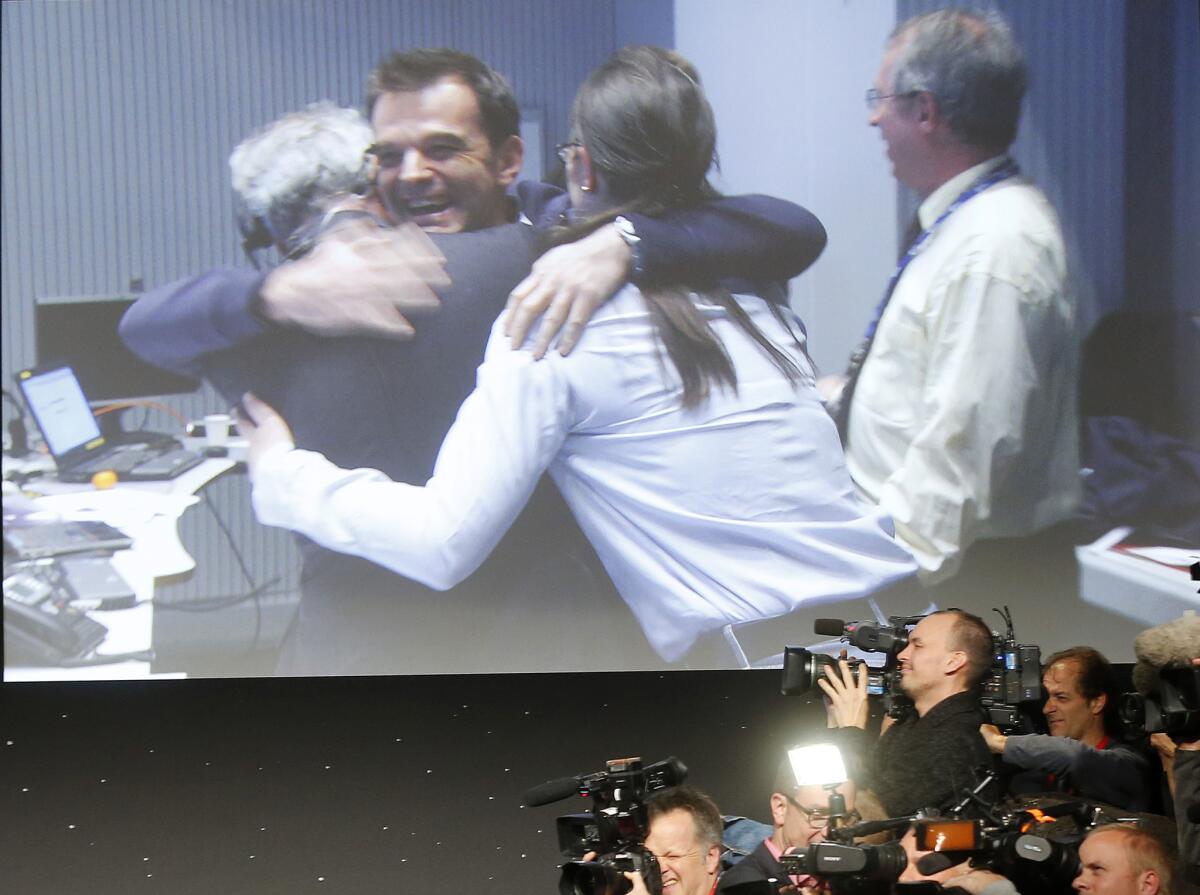Opinion: After a decade, Philae hits its mark -- and we all gain

- Share via
Watching the live feed from the European Space Agency has been a bit like being the wallflower at a cocktail party. Lots of chatter of varying intensity (snippets of German through the speakers), people milling about, folks popping up here and there with a camera to take a snapshot.
But then there were other people speaking into headsets, zipping from a desk chair to a monitor or a printer and back again. The tension didn’t quite seep through the computer screen, but it was there.
Then the moment came, 8:03 a.m. PST, when the Rosetta‘s landing module, Philae, was supposed to send its first signals from the surface of Comet 67P/Churyumov-Gerasimenko. And, a minute later, it did. A few smiles swept across faces, then cheers swept across the room, followed by hugs and handshakes and fist pumps.
How this mission eventually plays out, of course, is unknown. As I write this, the scientists are assessing how well the landing went as the Philae anchors itself to the comet. But the initial announcement is: Success.
It was a remarkable moment. The Rosetta launched more than a decade ago, pursued a convoluted path through space to ultimately land right where it was supposed to, on a comet zipping around the sun at 41,000 miles per hour.
As I, and countless others, watched.
It wasn’t quite like watching the 1969 moon landing, but it was still a thrilling moment. Not just for the knowledge the mission might bring us, but because of what it says about the fruits of international cooperation, of imagination and vision, and of insatiable curiosity.
We spend so much time on the close horizons of our lives. But moments like the landing of the Philae give us a reason to look up, above the horizon. My wife and I often walk to the park across from our house to scan the evening sky for the unmistakable dot of fast-moving light: The International Space Station. Yeah, it’s a geek moment, but also a humanizing moment, every time we spot it.
Much like peeking into the control room as the Philae reported back that, yes, it had landed on a comet.
This is where the future of civilization lies, in these joint explorations pressing the edges of our communal ignorance to see what we can learn together. In agreements to try to mitigate the poisons we have jointly fed into the environment that sustains us all.
In finding that common purpose matters more, and gets us farther, than working toward separate and conflicting ends.
Follow Scott Martelle on Twitter @smartelle.
More to Read
A cure for the common opinion
Get thought-provoking perspectives with our weekly newsletter.
You may occasionally receive promotional content from the Los Angeles Times.











